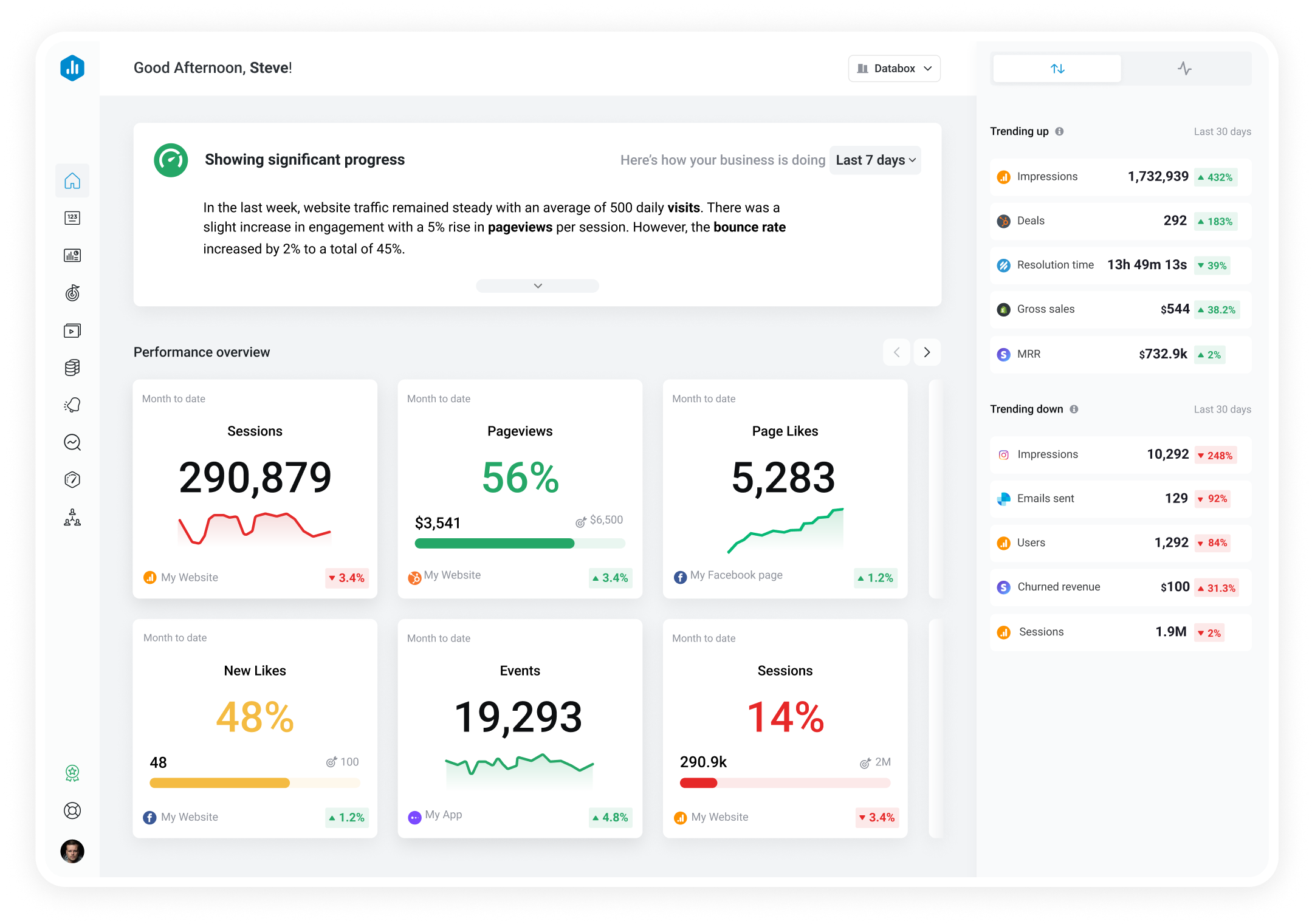Track all of your key business metrics from one screen
GET STARTED
 QuickBooks
Refunds
QuickBooks
Refunds The Refunds metric in QuickBooks is a measurement of the total amount of money refunded to customers during a specific time period. It's an important metric to track to evaluate the effectiveness of your refund policy and customer satisfaction with your products or services.
With Databox you can track all your metrics from various data sources in one place.

Used to show a simple Metric or to draw attention to one key number.
Databox is a business analytics software that allows you to track and visualize your most important metrics from any data source in one centralized platform.
To track Refunds using Databox, follow these steps:
 Goals
Goals Scorecards
Scorecards Metric Digest
Metric Digest Metric Builder
Metric Builder Data Calculations
Data Calculations Performance Screen
Performance Screen